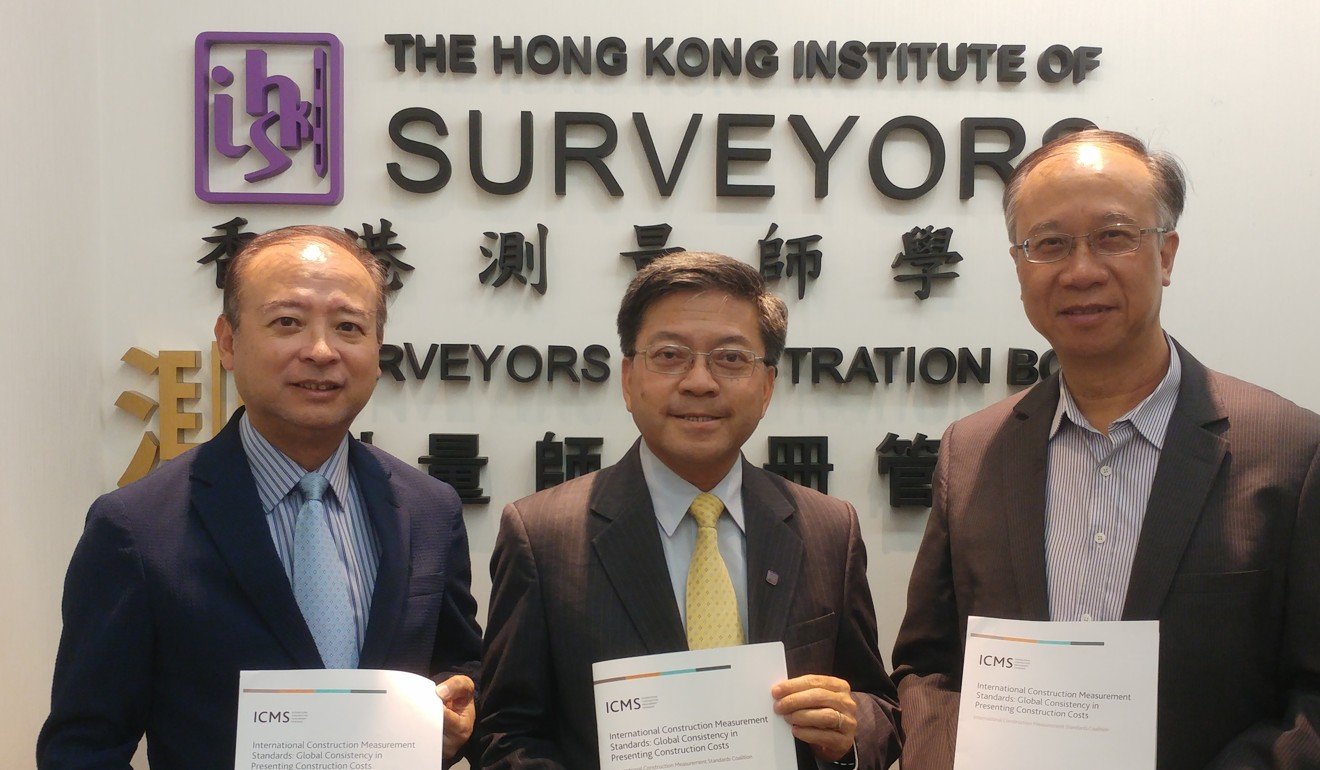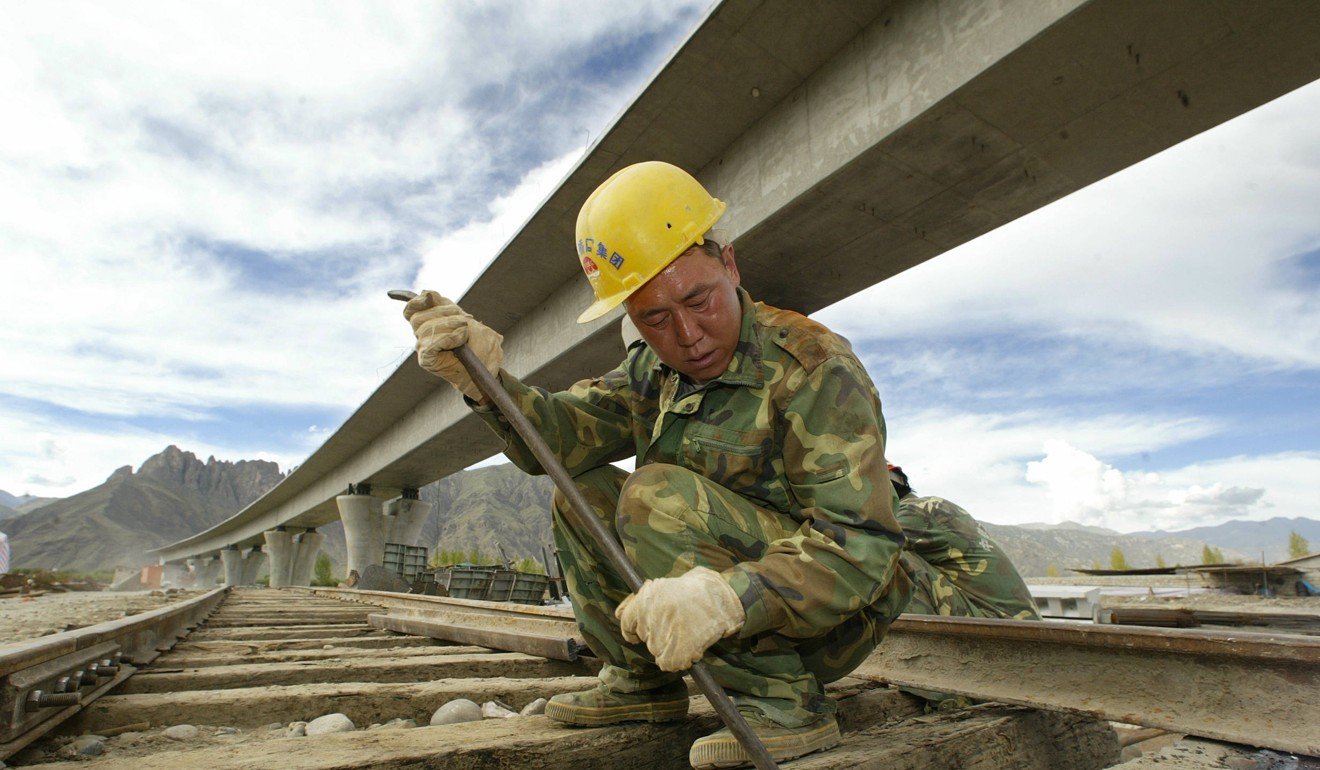
Hong Kong building industry experts applaud arrival of universal International Construction Measurement Standards
ICMS aims to provide greater global consistency in classifying, defining, measuring, analysing and presenting construction costs at a project, regional, state, national and international level

The newly launched global standards of measurement for construction costs will enhance transparency, lure more capital investment, and improve confidence of both institutional and individual investors, according to the president of the Hong Kong Institute of Surveyors (HKIS).
Until now the global construction industry has lacked a common language and framework for classifying and reporting construction costs, which has often caused huge problems for consultants, quantity surveyors, construction economists and cost engineers around the world.
But HKIS’ Thomas Ho Kwok-kwan said that with the International Construction Measurement Standards (ICMS), launched in Vancouver on July 25 and now in place, it is expected to allow better comparisons of costs, improve universal investor confidence and attract more private sector funding.
More than 40 organisations globally worked on collating the new standards, which essentially promise a more consistent method for presenting construction costs, he says, adding that Hong Kong has been at the forefront of their creation.

“In the past, construction companies focused on investing in their own regions. But now companies will also be able to do more cross-border projects. It is vital to make sure costs can be assessed in a transparent way. ”
Tang Ki-cheung, a member of the ICMS stndards setting committee and chairman of its sub-group on building works, was also one of the co-authors of the ICMS, and offered some examples of differences among regions that have existed over the years.
“You would be surprised to see how standards can differ between regions of the world. ‘Superstructure’ can mean very different things in different regions. The same applies to ‘fittings and equipment’, ‘gross floor areas’, ‘soft costs’.
“Some regions do not consider site acquisition or preparation costs as parts of construction costs while some others do.
You would be surprised to see how standards can differ between regions of the world. ‘Superstructure’ can mean very different things in different regions. The same applies to ‘fittings and equipment’, ‘gross floor areas’, ‘soft costs’
“Are legal, accounting or consultation fees included? Some regions do not have good water and power infrastructure. So you need to cover that in your construction costs...
“These were the types of questions we needed to address, if you were considering construction in other parts of the world.”
Tang said the lack of a uniform approach had led in the past to confusion, making comparisons between schemes and assets within schemes, on a like-for-like basis, an administrative minefield for some developments.
“After the Sichuan earthquake in 2008, the Development Bureau asked us to help estimate the cost of building a school in the mainland.
“But we couldn’t help because Hong Kong and China had very different standards in what are included or excluded in cost estimates,” added Cheung Tat-tong, chairman of the International Cost Engineering Council and a former president of the Hong Kong Institute of Surveyors.
Tang said the new standards can also affect ordinary property buyers too.

“For flats in Hong Kong and India, for example, described to have the same gross floor areas, you may see different actual sizes because of different ways to calculate them.”
Ho said the entire standard setting took just under two years to complete. It has more than 45 professional associations to share the common vision.
Cheung admits he was originally worried about the new standards.
“We were concerned if they will override or conflict with existing standards used in Hong Kong. So we have adopted a wait-and-see attitude.
“But we are relieved the standards setting committee made a lot of effort to avoid misunderstandings by using clearer terms such as “sub-groups” instead of “elements” in some regions to mean sub-categories.”
Cheung added that the “Belt and Road Initiative” has put Hong Kong’s surveyors in pole position when it comes to the many hundreds of projects planned within the Chinese-led economic development programme.
Chinese representatives were not actively involved in the deliberations and standards-settings of the ICMS. But we were. Hong Kong’s are more in line with international standards than those used in China
“Chinese representatives were not actively involved in the deliberations and standards-settings of the ICMS. But we were. Hong Kong’s are more in line with international standards than those used in China,” he said.
“So when you talk about [investing in projects involved in the ‘Belt and Road Initiative’, I don’t think Chinese investors can find a lot of consultancies in the mainland who can help them properly estimate the costs in the different countries in which they want to invest.
“Hong Kong’s surveyors understand the standards used in other countries better because of our active participation in ICMS’s standards setting.”
Cheung said in the past it was almost impossible for governments and investors to compare construction costs like with like, and hard to know if public infrastructure projects were good value.
“The new standards will help enhance transparency by standardising what are included or excluded in cost estimates. So Hong Kong’s Development Bureau will have an easier time answering questions about cost break-downs of major projects in the Legislative Council,” Cheung added.
Going forward, he said his Institute will promote the new standards to the Development Bureau, surveying firms and contractors.
“The Bureau has a positive attitude in adopting ICMS.”